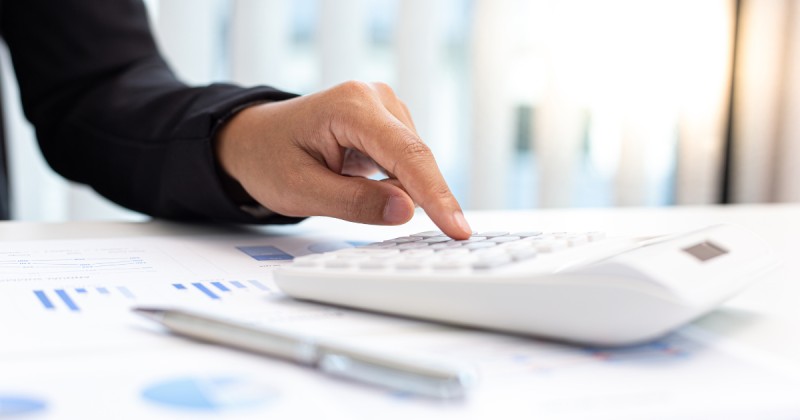VAT reclaims, the ins and outs: When IT freelancers can claim back VAT on tech purchases

Understanding the complexities of Value Added Tax (VAT) as an IT freelancer is crucial for managing your finances effectively, writes Lara Hodkinson, head of accounting at Danbro Accounting.
After all, VAT impacts both billing practices and cost management.
And while the general principles of VAT apply across all sectors, there are specific considerations for IT freelancers and technology contractors.
Here, exclusively for Free-Work, I want to delve into the intricacies of VAT, offering tips on not only navigating VAT as a system – which we introduced last month – but also on how registering for VAT with HMRC, registering for certain VAT schemes, and crucially, reclaiming VAT, can better your bottom line as a freelance tech biz – in 2024 and beyond.
VAT rates and registration in the UK look like this…
In the UK, the standard VAT rate is 20%.
There are also reduced 5% and 0% rates for specific goods and services, too.
For IT freelancers, though, most services will fall under the standard rate of 20%, which needs adding to fees when invoicing clients.
VAT through the lens of software, digital products, and high-value computer contracts
But certain software or digital products might fall under different rates depending on their nature and use.
It’s important to classify your services correctly to apply the right VAT rate.
The current VAT registration threshold is £85,000. So, if your business's taxable turnover exceeds this limit over any consecutive 12-month period, you are required to register for VAT.
If you don’t have an accountant watching out for you, it’s crucial to monitor your turnover, particularly with such high-value contracts in the IT and computing sector, as failure to register for VAT can result in penalties by HM Revenue & Customs.
And these penalties aren’t to be sniffed at!
Voluntary VAT registration
Businesses with a turnover below the £85,000 threshold can choose to register for VAT voluntarily.
If you’re a new to having your own limited company for IT contracting, being VAT-registered can lend additional credibility in the tech industry, portraying your business as established and reliable, which can be beneficial when it comes to bidding for larger projects.
But there’s immediate financial, cashflow-related benefits too, to your limited company and your client.
Reclaiming VAT: your client and your limited company
In fact, being VAT registered (including on a voluntary basis) may make you appealing to work with if your customers are VAT-registered businesses, as they will be able to reclaim the VAT and make the cost neutral to them.
For IT freelancers and start-ups often working with VAT-registered businesses, voluntary registration for VAT with HMRC can benefit you too.
In particular, being VAT registered allows you to reclaim VAT on equipment, software subscriptions, and other tech-related expenses.
Which items’ VAT cannot be recovered?
Nonetheless, you should check with your accountant if there is a technology item you think you ought to be reclaiming the VAT on, but aren’t. Checking with your accountant is necessary if you’re unsure, because there's no exhaustive list from HMRC dictating which items' VAT can be reclaimed for.
But the good news for IT freelancers, is that tech-related purchases do generally include reclaimable VAT.
And the VAT reclaim process applies similarly to tech-related and non-tech items alike.
How to claim back VAT (on a laptop)
To claim back VAT, you must have a VAT receipt, which is only available if the seller of the item is VAT-registered.
Let’s take an example. If you purchase a computer for £1,000 plus VAT (totalling £1,200), you can offset the £200 VAT against your tax liability, allowing your limited company to gain tax relief on the £1,000 cost.
So, if your sales include £1,000 of VAT, this allows you to reduce your VAT liability to £800 by offsetting the £200.
When techies recovering VAT just isn’t going to be an option
Be aware though, for non-VAT registered businesses, reclaiming that £200 VAT won’t be an option.
That said, you can still obtain corporation tax relief on the entire purchase amount!
To reiterate, though, consider VAT when you're utilising the services of another business. If the business is VAT registered, you can reclaim the VAT they charge. Conversely, with a non-VAT registered business, there's no VAT available for reclamation.
Also, expenses like business entertainment or personal items don't qualify for claiming back VAT.
HMRC’s VAT schemes for freelancers: which one will compute with you?
There are several VAT schemes tailored to different business needs. This includes:
Standard VAT Accounting
Here, you charge VAT on sales and reclaim VAT on purchases, then pay HMRC the difference.
This scheme is suitable for regular client interaction and consistent cash flow.
The scheme requires detailed record-keeping as it could lead to cash flow issues if VAT is paid before client payments are received.
You should consider if you have significant tech-related expenses (like high-end hardware or software licenses), where reclaiming VAT can be beneficial.
Flat Rate VAT Scheme:
The FRS allows businesses to pay a fixed rate of VAT to HMRC.
The scheme is suitable for freelancers with minimal VAT-able expenses, although VAT cannot be reclaimed on purchases.
This scheme is ideal for reducing paperwork and providing predictable VAT costs.
It’s also useful for solo IT contractors with limited expenses, simplifying accounting and reducing time spent on financial administration.
VAT Cash Accounting Scheme:
VAT is accounted for when payment is received rather than when an invoice is issued, aiding cash flow.
However, VAT on purchases can't be reclaimed -- until the supplier is paid.
Common in IT projects, where payments can be delayed, this scheme helps manage cash flow by aligning VAT payments with actual cash received.
Cost implications if you’re VAT-registered include…
Registering for VAT may incur additional costs, such as software or professional accounting services, to ensure the accuracy of your VAT recording and reporting.
You should also factor in the cost of accounting software that can integrate with other tools used in IT freelancing, such as project management or time-tracking tools, for streamlined financial management.
Maintaining accurate VAT records is actually a legal requirement for VAT-registered businesses. This includes sales and purchase invoices, bank statements, import/export documentation, and a VAT account.
Be aware though that, once registered, VAT returns typically need to be submitted to HMRC every three months. It's crucial to meet your deadlines to avoid penalties.
As a tech freelancer and owing to the complexity of IT services, you should ensure that your invoices clearly state the VAT charged, particularly if or where you offer a mix of VAT-rated and potentially zero-rated, or exempt, digital services.
Lastly, don’t underestimate VAT’s importance to your freelance future
Remember, VAT management is a dynamic aspect of your freelancing business and keeping abreast of changes in VAT legislation, especially those impacting the tech industry, is crucial for continued financial success and compliance.
Whether you're obligated to register due to exceeding the income threshold, or if you’re considering voluntary registration, it's essential to understand the benefits, financial advantages and your responsibilities.
Finally, when it comes to VAT and freelancer accounting, selecting the right accountant is also paramount.
Beyond regulatory compliance, a proficient accountant should offer personalised tax planning, limited company tax advice, and industry-specific expertise. With the right knowledge and support, you can optimise your VAT strategy and secure your freelance tech business’s financial success.
As Danbro Group’s head of accounting, Lara’s key responsibility is partnering with our start-up, SME, freelance and franchise clients; working to understand their needs; to aid growth through the development of bespoke accounting solutions; to provide specialist support and oversee outstanding service delivery; and to enhance client relations through great communication and outstanding service.




Comment
Log in or create your account to react to the article.